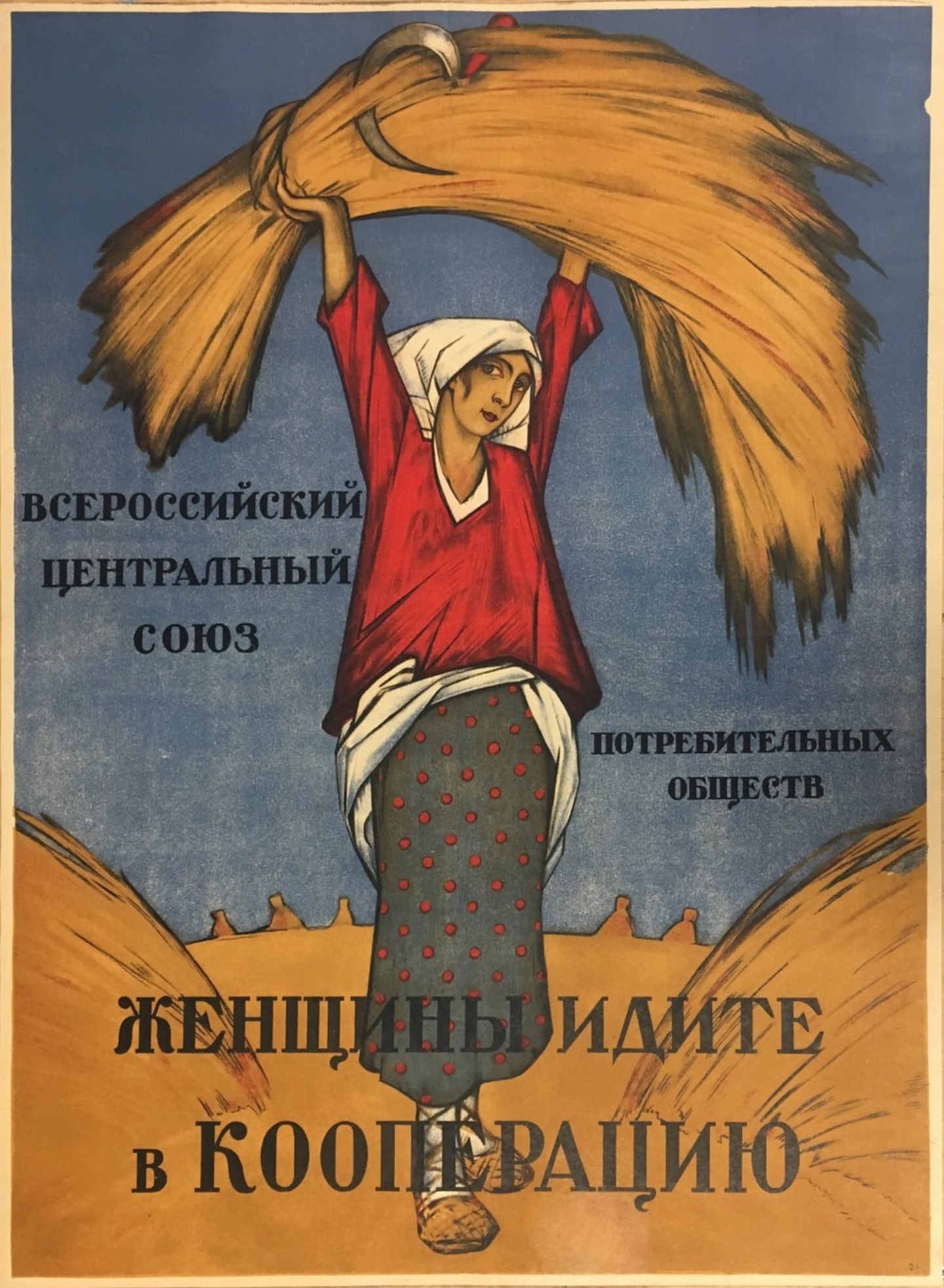Social Feminism & Revolution
The 20th century in Russia began in an unstable political and social environment, proletarian protests arose in the West, and soon the old Russian feudal system began to break down.
Current in Germany at that time, Marxist ideas were slowly conquering the entire industrial world, the oppressed working class actively embraced the ideas of social equality, and soon a leader appeared who was ready to revive these ideas, Vladimir Ilyich Lenin, who received his basic education in Western Europe, where the knowledge of Marxist ideas was still He became stronger, and soon after arriving in Russia, he founded the Russian Social Democratic Labor Party, later Patria split into two and divided into Mensheviks and Bolsheviks.
Finally, in 1917, the Bolsheviks, led by Lenin, were able to come to government through a revolution.
The post-revolutionary, transitional period in the Russian Empire can be assessed as very strange, despite Marxist ideas, the Bolsheviks created a new economic system, i.e. a new economic policy, during which the state did not have total control over the market, no matter how strange it is, independent small business trends were also created, which It was unacceptable for Marxist ideology.
The Marxist idea also considered women’s rights as full-fledged, gender equality. According to the revolutionary Leonid Trotsky, the oppression of women and gender imbalance is a plague connected with class differences, and of course, this problem should have been solved under the socialist regime. Women participating in the state revolution began to solve the problem: Rosa Luxemburg, Clara Zetkin, and Alexandra Kollontai.
They soon began to actively campaign against sexism, their main message was that the socialist revolution freed women from bourgeois laws, according to which women were not allowed to make independent decisions, and equated capitalism with oppression and sexism, soon the law for women’s equality was adopted, women were allowed to participate in elections Also on the initiative of Alexandra Kollontai, was started agitation against the destruction of women’s moral rules, sexual intercourse should no longer be a taboo topic for women, and the free will of a woman as an individual should be equal to that of a man, a woman’s main concern should no longer be being a housewife, and it was even necessary for women to be active in the public sphere.
Although these messages of Ms. Alexandra Kollontai are very similar to the narrative of today’s feminist ideology, her liberal feminism was a remnant of the bourgeoisie and had nothing to do with Marxist feminism. In 1919, Kollontai founded the Zhenotdel, which worked to improve the status of women in the Soviet Union. She was a champion of women’s liberation and later came to be recognized as a key figure in Marxist feminism.
Later, the term “domestic slavery” appeared, which was associated with a stereotypical capitalist existence, where a woman was deprived of all rights and had to be a free servant of her working man at home. This problem remained relevant in the world, even in the second half of the twentieth century, women inspired by communist feminism started The formation of movements in Europe and North America, for example, we can cite Angela Davis, who started the fight for women’s rights, in the name of communist feminism in the USA, you know, Marxist ideology was very unpopular in America at that time, but they still dared to openly protest the indifference shown by the Sistas, to women’s rights.
Young people, particularly at university, are often interested in exploring ideas and concepts that they may be coming across for the first time in their lives. The current crisis means that more young people than ever before are looking for ideas that challenge the status quo. This is why the ideas of Marxism are becoming increasingly popular among students at the moment. But this also goes some way to explaining the attraction of feminism to some young people.
Marxists will struggle alongside everyone who wants to fight for a better world, particularly those who are new to political ideas and activity. But Marxists also take a firm approach to our attitude towards the bourgeois democratic demands of academic feminists. Ours is a class position that has nothing in common with those feminists who seek no more than equal exploitation under capitalism. We stand for the complete unity of the working class and the struggle for socialism. This is the only way prejudices can be broken down and the material foundation for a genuinely classless and equal society can be built.

